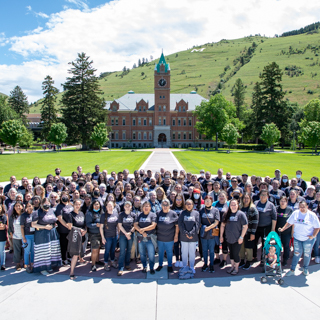18. Language, culture and climate change in the Arctic
For Indigenous peoples, the links between the environment, their cultures, languages, and sense of identity are strong and deeply interwoven. The effects of climate change include rapid and extensive cultural and linguistic disruption. In the Arctic today, life for Indigenous peoples is changing rapidly, due to accelerated climate change and rapid urbanization. In this workshop we examine these ongoing changes in Siberia, their impact, and how Siberian Indigenous peoples view them. Rising temperatures have brought massive summer wildfires (with 2021 being a record), melting of permafrost, extensive flooding, coastal erosion, rapid decline in the populations of wild elk and caribou, contamination of water, and high levels of mercury and other toxins in all wild life. Life has fundamentally changed in the Arctic and Subarctic regions. One immediate impact has been the massive migration of peoples from their villages to urban centers.
Approximately 12.5% of all people living in the Arctic are Indigenous. We focus on the Even people in the Republic of Sakha (Yakutia) where minority Indigenous peoples live in close contact with a larger minority group, the Sakha (or Yakuts) and all live within a Russian-dominant country. For Indigenous people like Even, who are reindeer hunters and herders, climate change has led to massive cultural disruption. This workshop examines the changes and how to work with a community whose linguistic and cultural practices are in flux, asking what sustainability and adaptability mean in this context and how we can support them. We consider the deep connections between Even language, culture and the environment, such as the role of reindeer not only in herding and hunting, but as a central part of life. Using Arctic models of resilience, we look at stress factors and protective factors among Even in particular and across Arctic Indigenous peoples more broadly.
Facilitation Team
